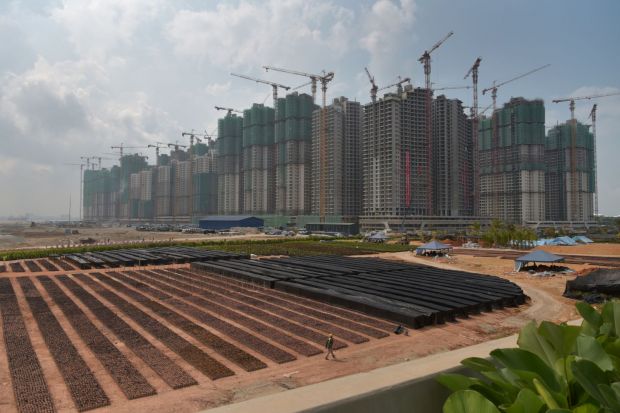Malaysia building sector to see short-term weakness: report
MALAYSIA’S construction sector may see short-term weakness given macroeconomic uncertainties, but will get a boost from completed transport infrastructure projects in the long run, said Fitch Solutions Macro Research in an Aug 19 report.
Fitch Solutions lowered its forecasts for both the residential and non-residential buildings sectors. The report noted weak supply side data, with a decreasing number of units planned for construction in both sectors in the rest of 2019 and 2020.
First quarter figures for the residential sector showed housing prices growing at the slowest year on year pace since 2014, with the housing price index falling for the first time in 20 quarters. The residential sector is now expected to contract 0.9 per cent in 2019, with a “modest recovery” of 2.6 per cent growth in 2020.
Short-term macroeconomic uncertainties are likely to hit the commercial and industrial building sectors, said Fitch Solutions. Expecting muted business activity in the short term, its forecast is for the non-residential buildings sector to contract 0.8 per cent in 2019, and grow 2.1 per cent in 2020.
With this, Malaysia’s overall construction growth is forecast at 1.1 per cent in 2019 and 3.5 per cent in 2020.
Nonetheless, Fitch Solutions expects the construction of affordable housing projects to “slightly compensate for weak growth in the high-end residential buildings sector in the short run”, pointing to the National Housing Policy announced in January 2019.
“Currently, a large proportion of unsold property consists of relatively pricey, high-end housing such as condominium apartments, terraces and semi-detached houses,” noted the report.
And in the long term, the completion of key infrastructure projects will boost the building sector as improved accessibility creates opportunities for development.
The completion of the West Coast Expressway and the Pan Borneo Highway will improve land transport links between rural and urban areas, “opening up new doors for the construction of industrial buildings and associated facilities along the route”.
The East Coast Rail Link will be a boon for residential and industrial real estate developers, especially in the eastern coast of Peninsula Malaysia, as a “majority of the locations along the planned route are currently relatively underdeveloped”.
With the Klang Valley Integrated Transit System developing over the next decade, Fitch Solutions also expects a gradual increase in the number of residential projects in suburban regions of the Klang Valley as accessibility improves.


 Thailand
Thailand




